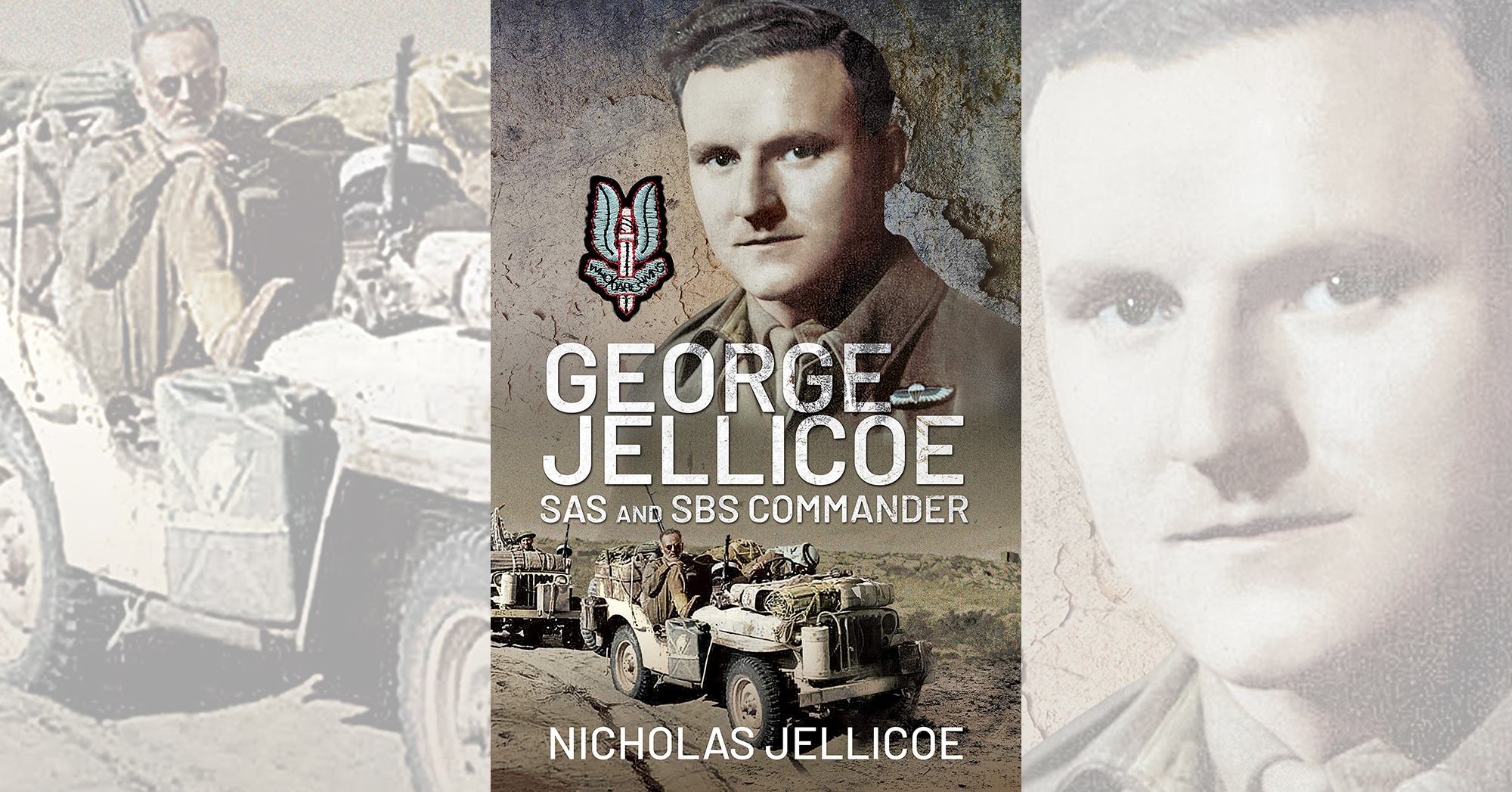George Jellicoe: SAS and SBS Commander, by Nicholas Jellicoe, Pen and Sword Military, Barnsley, U.K. $38
George Jellicoe undertook some of the most spectacular raids in the Mediterranean during World War II, including blowing up aircraft behind enemy lines in Crete and parachuting into Rhodes on a mission to save the Dodecanese Islands. This was an atmosphere in which Jellicoe thrived, leaping in to engage the enemy where others dared not go. In this detailed account, his son provides a fitting tribute to his father.
In the elder Jellicoe’s early days, the British army’s No. 8 Commando was made up of “lots of sprigs of spriglets of aristocracy,” many of whom were members of London’s very exclusive White’s club, from which they’d been recruited. By the time George Jellicoe joined the SAS in 1941 as David Stirling’s second-in-command, the men were undergoing rigorous training in the North African desert, hiking 60 miles or more while carrying backpacks full of bricks, and jumping from moving trucks.
As a leader of men, Jellicoe gained the respect of those around him, although he loathed discipline. He fitted in well as commander of the Special Boat Squadron, a post he took up in April 1943. The men of the SBS were a seagoing “bunch of raggle-taggle daring-doers,” whose “filthy and often haphazardly assembled uniforms were in themselves symbolic, reinforcing the raiders’ solidarity and accentuating their disdain for the rule that applied to the rest of the army.”
Jellicoe saw his early foray into action at Tobruk, Libya, as rather a jaunt. By the time he got to the Greek island of Leros, he was taking the war more seriously as he saw the deaths of his fellow soldiers mount up. In 1943 he fought in the battle to defend Leros and, once the island fell to the Germans, helped soldiers escape. He was still only 26 when made acting brigadier for supposedly chasing off the Germans, having “liberated Athens on a bicycle.” Though Jellicoe went on to postwar careers in the British foreign service, Parliament and business, three quarters of this well-researched biography justly covers his very active military life up to 1945. As his son states, “The war had been the highlight, the ‘glanzpunkt’ [“highlight”] of his life.” A fascinating read.
—Julie Peakman
This post contains affiliate links. If you buy something through our site, we might earn a commission.





